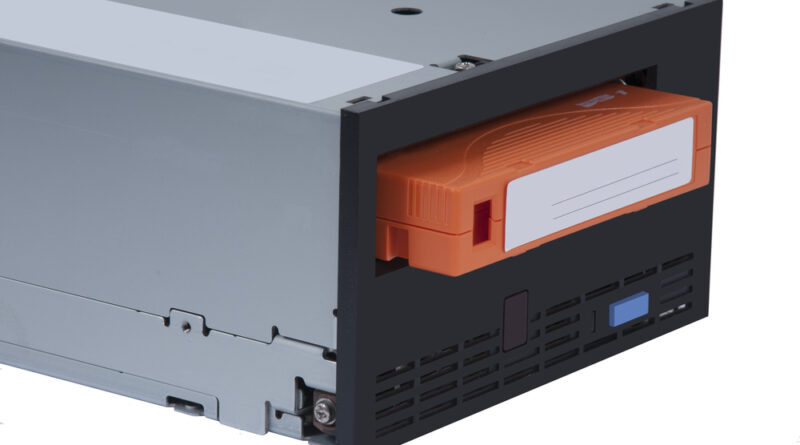The Role of Tape Drives in Reliable Data Storage Solutions
In the world of IT Hardware and Data Storage, the Tape Drive is often regarded as a reliable and cost-effective solution for long-term data storage. Although cloud storage and solid-state drives are frequently in the spotlight today, tape drives remain a critical component of many data management strategies. Their durability, capacity, and cost-effectiveness make them a solid choice for specific storage needs, particularly in large-scale enterprises.
This article explores the importance of tape drives, how they work, their benefits, and why they continue to be relevant in a rapidly evolving technology landscape.
What is a Tape Drive?
A tape drive is a device used to read and write data on a magnetic tape. Unlike Computer Hardware like hard drives or SSDs, which provide direct access to stored data, tape drives store data sequentially. This means that data retrieval takes longer because the tape has to move to the exact location where the data is stored. However, the unique architecture of tape drives makes them ideal for storing large volumes of data that do not require frequent access.
Tape drives have been a staple in the Data Storage industry for decades. They are widely used for backup, archival, and disaster recovery purposes because of their high reliability, durability, and capacity to store vast amounts of data at a lower cost.
How Do Tape Drives Work?
Tape drives utilize magnetic storage technology to write data onto the tape. Here’s a breakdown of how they work:
- Magnetic Tape: Data is stored on a thin plastic ribbon coated with a magnetic material. The magnetic tape is wound onto a spool inside a cartridge.
- Reading and Writing: A tape drive has read/write heads that interact with the magnetic tape. During the writing process, data is recorded magnetically onto the tape. During the reading process, the drive retrieves the data using the same heads.
- Sequential Access: Unlike random-access storage devices, a tape drive reads data in a sequential order, which means it has to fast-forward or rewind the tape to find the specific data required.
- Data Compression: Many modern tape drives come with built-in data compression features, allowing them to store more data than their actual capacity would suggest.
Benefits of Tape Drives
1. Cost-Effective Storage
Tape drives offer a very low cost per gigabyte compared to other storage solutions. This is especially beneficial for businesses that need to store large volumes of data without breaking the budget. The cost-effectiveness of tape drives makes them an ideal solution for archiving purposes, where data does not need to be accessed frequently.
2. High Capacity
One of the key advantages of tape drives is their ability to store massive amounts of data on a single cartridge. Modern tape technologies like Linear Tape-Open (LTO) can store up to several terabytes of data per cartridge. As a result, tape drives are perfect for data centers, enterprises, and research facilities that need to manage vast quantities of data.
3. Longevity and Durability
Tape drives are known for their durability and long lifespan. Unlike hard drives, which have moving parts that can wear out over time, tape drives are built to last. Magnetic tapes can remain reliable for decades when stored under proper conditions, making them an excellent choice for long-term data storage and archival.
4. Data Security
Magnetic tapes are not easily accessible from a network, which makes them inherently secure against cyber threats like malware or ransomware. Additionally, the offline nature of tape storage helps protect sensitive data from unauthorized access, making it an excellent solution for businesses that require secure data backups.
5. Energy Efficiency
Tape drives consume less power compared to hard drives or solid-state drives. They only use power when data is being accessed or written, which makes them more energy-efficient. For data centers looking to reduce their energy consumption and costs, tape drives are an environmentally friendly solution.
6. Scalability
Tape storage systems can be easily scaled to accommodate growing data needs. Businesses can expand their tape library by adding more cartridges, allowing them to store more data without investing in new hardware.
Why Tape Drives Are Still Relevant
In an era dominated by cloud and flash storage, the continued use of Tape Drive might seem outdated, but they are far from irrelevant. Here are some reasons why:
1. Data Backup and Archiving
Tape drives are perfect for data backup and archiving, especially for data that doesn’t require real-time access. Companies often use tape drives for disaster recovery plans, ensuring that critical data is securely stored off-site and can be recovered if needed. Tape drives offer a reliable way to back up vast amounts of data that are not in regular use but must be preserved.
2. Complementing Cloud Storage
Many businesses use a hybrid storage model, combining tape drives with cloud storage solutions. Tape drives are ideal for cold storage, where older data can be archived safely and accessed infrequently. In contrast, cloud storage is used for data that requires faster, on-demand access. This hybrid approach balances cost, accessibility, and security.
3. Big Data Management
The rise of big data has created challenges in managing and storing vast amounts of information efficiently. Tape drives provide an economical and secure way to store massive datasets for analysis or research purposes without investing in costly data centers.
4. Longevity of Data
For industries that require data to be preserved for decades—like healthcare, legal, and scientific research—tape drives offer unmatched reliability. They have a much longer shelf life compared to hard drives or SSDs, ensuring that data remains intact and accessible even after several years.
Key Features to Consider in a Tape Drive
When selecting a tape drive for your business, it’s essential to consider some critical features:
- Storage Capacity: Consider the total data capacity and data compression capabilities. Higher capacity drives are better suited for large organizations that generate substantial data.
- Speed: Look for tape drives with faster read/write speeds if data retrieval and backup processes need to be quick.
- Compatibility: Ensure that the tape drive is compatible with your existing IT infrastructure and software.
- Data Security: Features like encryption, WORM (Write Once, Read Many), and secure authentication can enhance the security of your data storage.
- Durability: Choose high-quality tape cartridges with robust construction to maximize the lifespan and reliability of the storage medium.
Conclusion
Tape drives remain a significant player in the realm of Data Storage and IT Hardware. While newer storage solutions have emerged, tape drives offer unparalleled advantages in terms of cost, capacity, and durability. They are an excellent choice for organizations that need long-term, secure, and reliable data storage. For those looking to integrate a reliable backup or archival solution into their IT infrastructure, tape drives provide a proven and effective option.
In an era where data is growing at an exponential rate, the relevance of tape drives cannot be overstated. Their ability to provide a scalable, cost-effective, and energy-efficient storage solution ensures they will continue to be a staple in the world of Computer Hardware and Technology for years to come. By integrating tape drives into a comprehensive data management strategy, businesses can achieve a robust and secure storage infrastructure that will stand the test of time.




